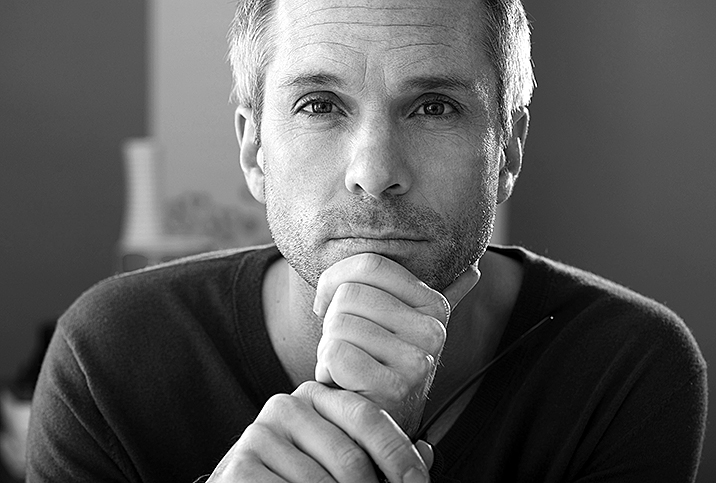How to Find Your New Family Doctor

Whether you're new to a town or unsatisfied with your current family doctor, finding the right physician for you can be a daunting task.
Even professionals know it's a challenge, and to ease the stress caused by the process, we talked directly to them about how to make the best choice with minimal heartache.
The search is on
Paul Pavlov, M.D., a family doctor in Biloxi, Mississippi, with nearly 40 years of experience, said your first source when looking for a new doctor should be friends and family.
"Their recommendations are usually the best," Pavlov said. "It's nice to be able to go to the doctor and say, 'So and so recommended me'—then you have something in common that builds a relationship."
Brian Ong, D.O., a family doctor in New Castle, Pennsylvania, said in addition to word of mouth, local print ads and signs are still an effective way to find a doctor, especially in smaller towns. Both Pavlov and Ong pointed out that internet searches and online reviews can help, but you shouldn't put too much stock in them.
"Be cautious, as sometimes the people most likely to review are the unsatisfied ones, and this isn't like hotels or restaurants where the provider gets a chance to reply publicly," Ong said.
In addition to word of mouth, local print ads and signs are still an effective way to find a doctor, especially in smaller towns.
Furthermore, Pavlov finds online doctor review sites to be at best "mediocre."
"Most of the time, when you read the ratings, you'll see they base it on, 'Somebody in the front office was rude,' and a lot of times it doesn't talk about how good the doctor is," Pavlov said.
What the internet is good for while looking up docs is in providing ample personal bios that can give you a lead on the right physician.
"Try to look for something in there that might make you more comfortable seeing them, whether it be a common location you share, personal or medical research interests you have in common, or maybe a similar background experience," Ong said.
Qualities and qualifications to consider
If a family doctor is board-certified, it means they have obtained additional education in their specialty and reached the highest level of accreditation.
"You like to see a doctor is board-certified in family medicine or general internal medicine," Pavlov said. "That's an important thing. That doctor has met certain standards of care."
"Family doctors must get recertified every 7 to 10 years, and they must have so much continuing medical education each year," Pavlov added. "If a doctor is board-certified in family medicine, they're probably a pretty good doctor."
In addition to being competent and qualified, Ong said it's important to find a compassionate family doctor who takes the time to listen to their patients. Ong has found from his experience that patients typically prefer to have a doctor explain their plan of action and why certain treatments and medications are being recommended.
"Building rapport takes some time," Ong said. "It's like any relationship where it may not be perfect, but it is still hopefully one that you can continue to build on positively."
The goal of such a connection is not just beneficial for you as a patient, but for your doctor as well, as they'll get to know you better—meaning they'll also learn what treatment and plans work best for you.
"The vast majority of my patients I consider my friends, not just my patients," Pavlov explained. "If I saw them busted on the side of the road, I'd stop to help, not just wave as I pass by. That comes with developing a relationship."
Pavlov added that there are many nurse practitioners and physician assistants who essentially function as family doctors, and while some of them are "very, very good," their training is not the same as a doctor. He compared the difference to that of an architect and a drafter.
"If you got really complex issues that deal with electricity and plumbing and roofing and standards and all that, a [drafter] can do some of that, but the true expert is the architect or engineer," Pavlov said.
Tips for the first appointment
You can research at length about a doctor, but you won't get a sense of what they're like until you schedule an appointment and meet them face to face. Look at the initial appointment as an opportunity to get to know each other. Rather like a job interview where they're applying for the job of looking after you.
During the first appointment, Ong said it's important to ask questions that fit your individual needs. For example, if you need annual "well-woman" exams, find out if your new doctor will do them or if a provider in their practice is available for the job. If you want the same doctor to see you in the event you are hospitalized or placed in a nursing home, find out if your doctor has privileges at those places. If you struggle with pain all the time, ask if they manage chronic pain or if they refer to a specialist.
"Ask questions to see if they have the resources to help you address your specific medical needs," Ong said.
Pavlov added that you should make sure you tell the family doctor your complete medical history and that of your family, too, as best you can during your initial visit—and bring your medications with you.
Look at the initial appointment as an opportunity to get to know each other. Rather like a job interview where they're applying for the job of looking after you.
"If you're on five medicines, it's easy to confuse one dose with the other," he said.
The family doctor will likely ask you about smoking, drinking, marital status and sexual orientation, Pavlov said.
"It's important things to know," he said. "If you're gay, there's a whole different set of health problems you have to deal with: Your risk of things like hepatitis C and some other diseases are higher. You've got to counsel a person in a little different way."
"Healthcare in the 21st century in the United States is complicated," Ong explained. "Unfortunately, a lot of time and effort is spent with insurances and scheduling and logistics, but I'd like to hope at the core of all this there is still the doctor-patient relationship.
"Hopefully, though, patients can find a family doctor to help them navigate this craziness we call life."


















